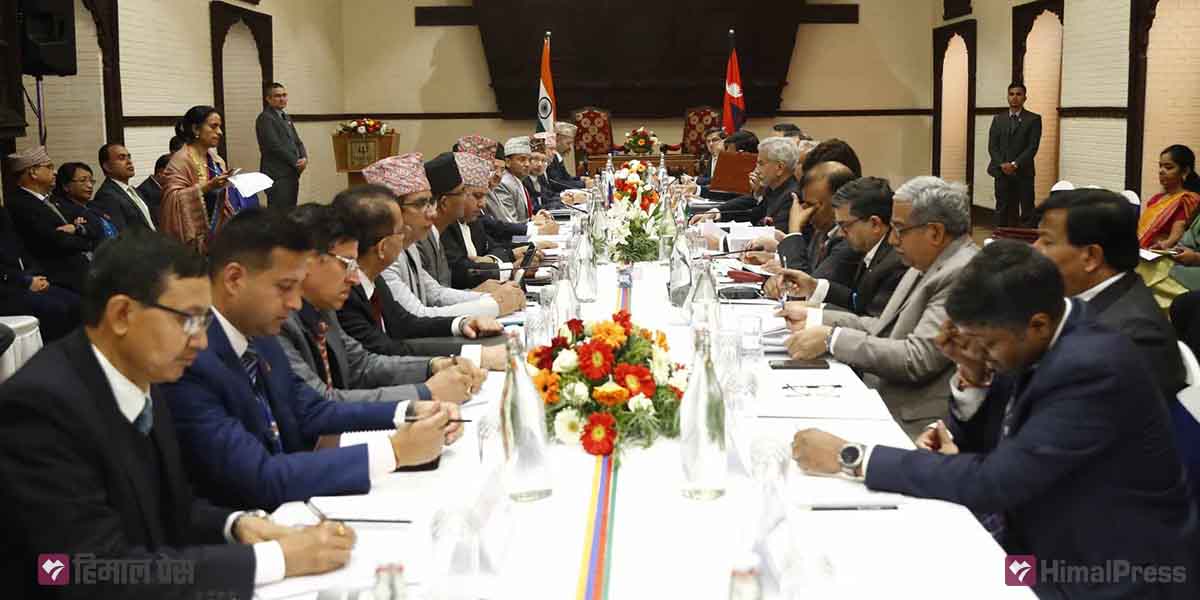The meeting of the joint commission – the highest bilateral mechanism – organized to discuss economic relations, communication, trade and transportation, energy and water resources, education and culture, and political issues concluded in less than an hour. Minister for Foreign Affairs NP Saud and India’s External Affairs Minister S Jaishankar co-chaired the meeting.
The two countries signed one agreement and three Memorandum of Understanding during the meeting, according to foreign ministry spokesperson Amrit Bahadur Rai.
Nepal and India have signed an agreement for the export of 10,000 MW of hydropower to India in the next 10 years. Nepal’s energy secretary Gopal Sigdel and his Indian counterpart Pankaj Agrawal signed the agreement. With the signing of the agreement, the understanding that the two countries reached in June last year to export 10,000 MW of hydropower to India in 10 years has materialized.
Likewise, the two countries have agreed to renew India’s High Impact Community Development Project (HICDP) in Nepal. Energy Secretary Krishna Hari Pushkar and Indian Ambassador to Nepal Naveen Srivastava signed the agreement. India can now invest up to Rs 200 million in projects implemented under HICDP.
During the meeting, India also announced a grant of Rs 10 billion for the rehabilitation of quake-hit areas in Jajarkot and Rukum West districts of Karnali Province.
Likewise, India has also agreed to help Nepal with the launch of its nanosatellites. Nepal Academy of Science and Technology (NAST) and the New Space India Limited signed a Memorandum of Understanding to this end.
The two ministers also remotely inaugurated three trans-border power transmission lines – Raxaul-Parwanipur, Kushaha-Kataiya, and Nautanwa-Mainahiya.
“The meeting discussed various aspects of bilateral relations such as water resources and flood control,” Rai said.
Minister for Foreign Affairs NP Saud said that the joint commission meeting covered various issues, from economic relations to connectivity, trade and transportation, energy and water resources, education and culture, to political matters.

